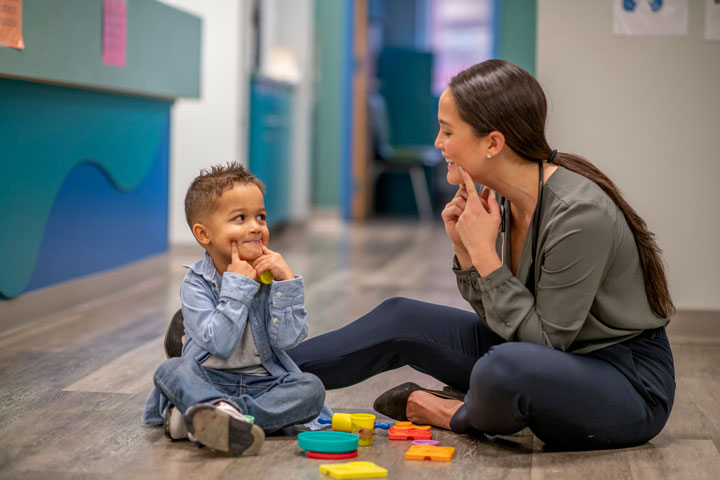Developmental Behavioral Child Health

Developmental Behavioral Child Health
19 Jul, 2024
MD, DNB, FIAP (Pediatrics)
Smile Children Clinic, Andheri, Mumbai
This year, I have completed 35 years of my practice as a child specialist and I have realised time and again that this dimension of Paediatrics is a commonly overlooked, misguided and trivialized. We need to have more Child Health experts and many more institutions to look after Developmental Behavioural child health.
Children with Neurodevelopmental disorders or children with special needs or neurodiverse kids should be cared for in more proactive manner. Neurodiversity is a natural variation in human brain. Brain can work perfectly in some areas but may be challenging in others. ADHD, Dyslexia, Autism etc are included in umbrella term of Neurodiversity.
Neurodiversity is a concept to be disseminated and accepted to become a more inclusive society.
Let “Neurotypicals” train & sensitize themselves to recognize the positive attributes in Neurodivergent. This surely will make huge difference in the medical as well as social dimension of Neurodiversity. Recognize that they are essentially different, not necessarily flawed !
The fact remains, however much the society wants to pretend otherwise, that society is sceptical of the performance of Neurodivergent world in almost every sphere of life. But, contrary to this widespread belief, neurodivergent can have unmatched & incredible positive attributes in varying permutations and combinations: like laser sharp focus, reduced ambient distractions, unmatched resilience, empathy, artwork & creativity and emotional genuineness. They have incredibly consistency, trustworthiness & honesty in the trained routines. Families of Neurodivergent become caring, sensitive, empathetic & tolerant. Recognizing, harnessing and capitalizing on the abilities of the disabled is a game changer in improving their QoL and guarantees the productivity for the nation as a whole, given the sheer prevalence of Neurodiversity.
Neurodisparity means inequitable access to and utilization of healthcare services in neurological diseases. And this neurodisparity is most prominent for neurodivergent. This poor access to healthcare has humongous detrimental impact on individual, societal and national level. Disproportionately lesser number of healthcare professionals working for Children with Special needs, dismal awareness of neurodivergent conditions and therapeutics thereof, insufficient number of Child Development Canters and most of them working in silos are some of the factors responsible for this inequity. This disparity becomes all the more pronounced when we move from urban to rural, affluent to resource poor and from well-educated to illiterate. All the stakeholders need to recognize and respond promptly to this disparity to
maximize the potential of neurodivergent. There are many possible interventions to address these health disparities. Unprecedented collaboration, planning and execution is needed for bridging the gap in access to healthcare for neurodivergent population.
Let there be paradigm shift in our perspective of looking at neurodivergent- “deficit based” to “strength based”. Let us focus not only on rehabilitation of deficits, but on the growth and meaningful living based on positive attributes in a given child. Then the most important question remains- what are the various strategies to identify abilities in disabled?
Differences in brains of Children should not be viewed as deficits or abnormalities or disabilities or sicknesses or defects or diseases. Since Sociologist Judy Singer coined this word Neurodiversity (ND) in 1998, it hasn’t still found a place in medical terminologies! Everyone deserves respectful language and so do children and adults with Neurodiversity. Embracing ND in true spirits is essential in educational and healthcare institutions.
It is important for everyone to realise that some of these ND individuals can have exceptional skills in pattern recognition, memory, and mathematics. Harvard Business Review has quoted that many MNCs had productivity gains, quality improvement, boosts in innovative capabilities, and increased employee engagement by hiring ND individuals.
Do you agree that all stakeholders need to enter into ‘mission mode’ from ‘spectator mode’?
Let us strive to imbibe these essential elements of early intervention for Children with Special needs: cross disability, parent centric, preparatory school & social model of disability, into the psyche of all stakeholders! Policymakers (formulating national program & standard guidelines for providing services to such children), administrators (registering & monitoring the standardization of centres providing such services), Educational institutions (addressing short supply of rehab professionals), Providers (rehab professionals getting the requisite training and working as per laid down guidelines), families with such children (rising for their own right to get care). Only changing the label: from CwD (children with disabilities) to differently abled children to children with special needs to neurodivergent children will not lead to measurable impact. And let us not forget that our ultimate goal is inclusive education and mainstreaming of such children. Let all of us join hands to stop discrimination against neurodivergent children and make inclusive society.
Article 15 of the Constitution of India forbids discrimination on grounds only of religion, race, caste, gender, or place of birth. This list needs expansion and neurodiversity being the prominent contender here. Let us not trivialize the inherent power of words and this power can harm or benefit. Some medical terminologies, due to their negative connotation, have power to harm.
Article 15, in Clauses (3-6), allows for positive discrimination in favour of disadvantaged groups. Wrong labels are disgraceful and have huge negative impact. Let us substitute those terms with positive once, though less “medically sounding “. At our centre, we have substituted ‘special needs child’ with a ‘neurodivergent’ child, ‘hyperactive’ with ‘Energetic’, ‘distracted’ with ‘fascinated’, ‘impulsive’ with ‘extempore’, ‘disruptive’ with ‘experimental’, and ‘inattentive’ with ‘diversely interested’. This turned out to be so incredibly helpful, not only for children and their parents, but to our pleasant surprise, also to therapists! Hence don’t forget to remember that optimism in the minds of parents and therapists is of utmost importance.
Early intervention centre should be catering to all disabilities (cross disability), should provide for capacity building of parents (parent centric), should understand a social model of disability rather than just a medical model, should be conversant with habilitation & rehabilitation, comprehensive with all services under one roof and should have preparatory school.
